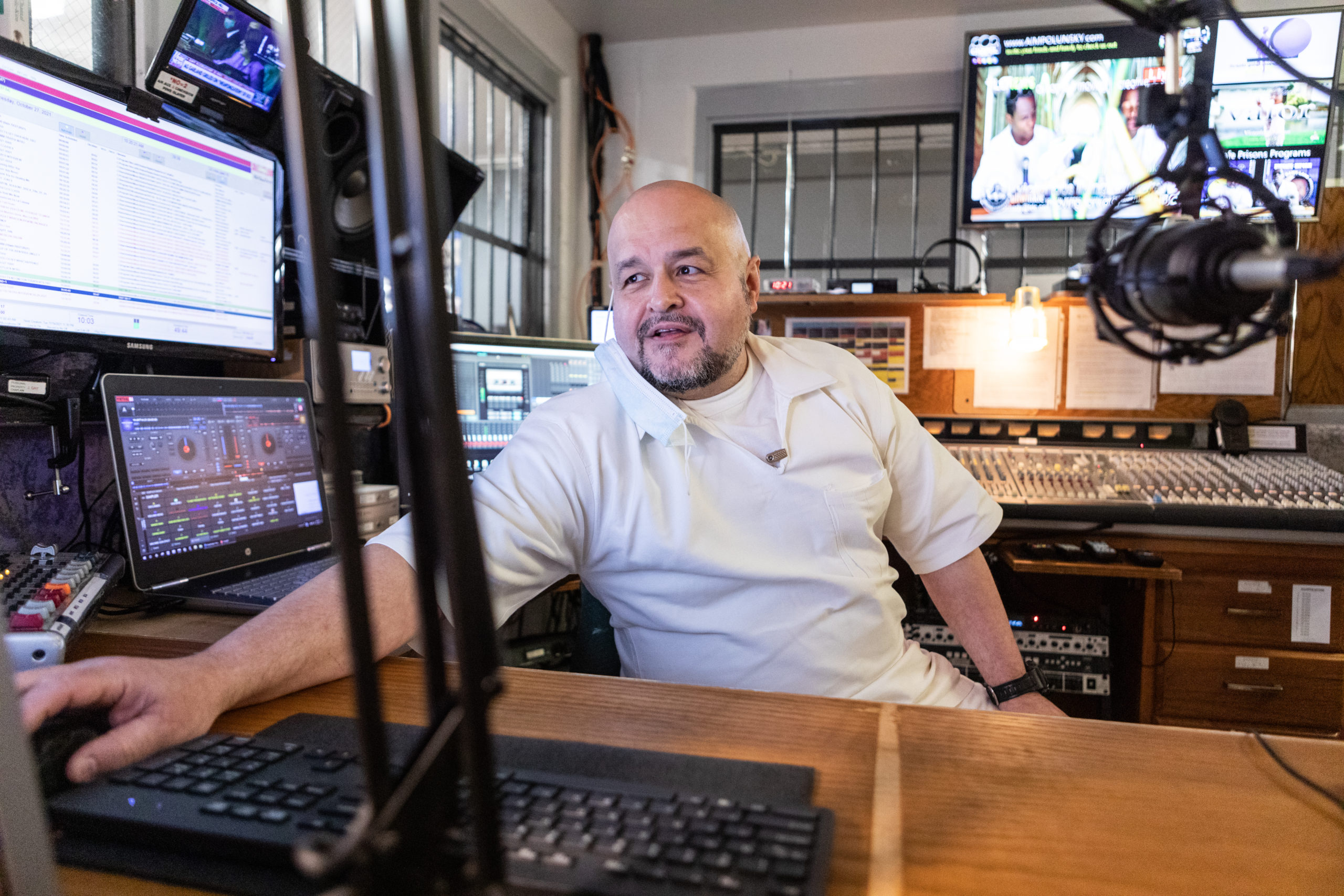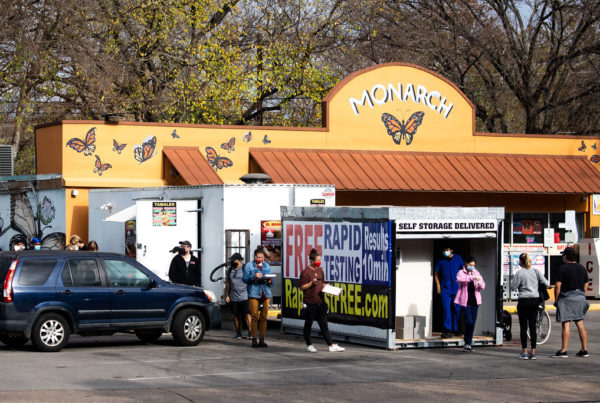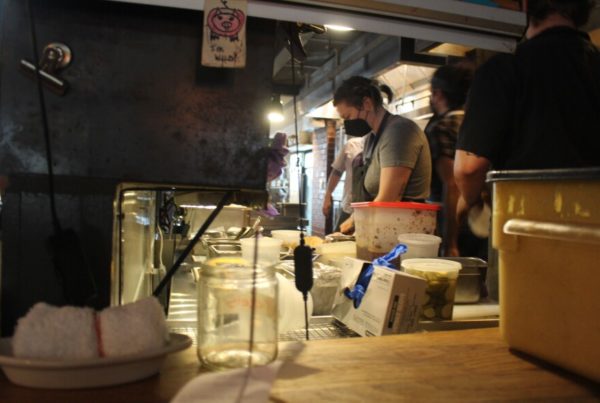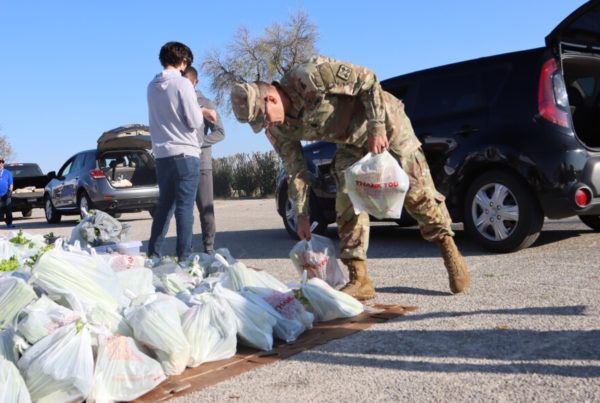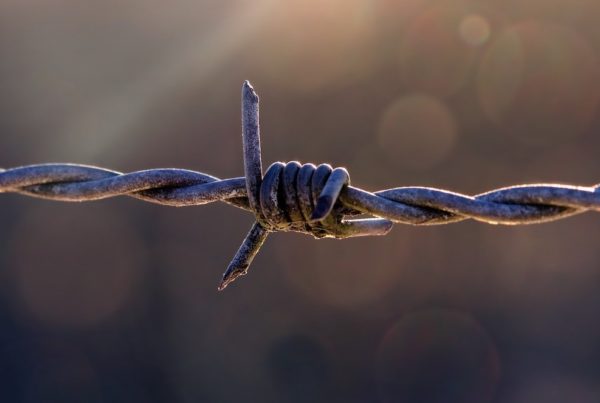Men living on death row in Livingston, Texas have little contact with the outside world – even others incarcerated in the same prison. But they do communicate. Residents of the Polunsky Unit operate a prison radio station that brings music, religious content and life skills to a prison audience.
Keri Blakinger wrote about the radio station for the Marshall Project. Listen to the interview above or read the transcript below.
This transcript has been edited lightly for clarity:
Texas Standard: Tell us more about this station. Where is it exactly and who runs it?
Keri Blakinger: It is run by the prisoners and it is located inside the Polunsky Unit. It looks like an almost nondescript sort of closet from the outside, and you go in this room in the center of the unit and it’s filled with sound equipment donated by churches.
What do you actually hear on the station? You’ve had a chance to listen in, right?
Yeah, I did. I visited the station and interviewed one of the main guys behind it, who goes by his DJ name, Megamind. And I’m really impressed by the amount of programing that they have. They have sort of round-the-clock programming, like you would with any real-world radio station, and they’ve got heavy metal shows – that’s very popular. They do life skills classes. They have some Spanish-language stuff. There’s a lot of religious programming. They have a little conspiracy theory show at night, and they also do some interviews. They’ve interviewed the warden. They interviewed a criminal justice board member. They’ve interviewed some of the other guys at the unit, talking about things tthat audience in particular would understand better than any other. And when I visited, they interviewed me.
It sounds pretty interesting to listen to. Can all the prisoners listen to the station?
Anyone that has a radio, it is a low watt station, so you can’t hear very far past the parking lot. Which also is kind of a really neat feature because I think in some ways it makes almost a safe space for the guys that are saying these things. Because they can talk about some deeply personal things and understand that the audience that’s hearing them is an audience that understands these issues in a way that most of the world cannot.
How did you hear about the station?
I was interviewing John Ramirez, who had 1 scheduled execution date in September. You might remember him. He was the guy that was trying to get permission to have his chaplain touch him as he was being executed,
So the week before he was scheduled for execution, I interviewed him and then he mentioned this station and we ended up spending like a third of the interview talking about this radio station, which I think is also very telling. With this potential execution date looming, he was really enthusiastic about talking about this radio station. That’s how meaningful it is to them.
How do prison officials feel about this ability to communicate beyond walls and whether or not that cuts into the spirit of incarceration, especially the isolation that’s definitely a component of it, at least historically speaking?
I think that part of it is that this warden seems to be invested in being willing to try more progressive new things. There’s one thing that he said to me that didn’t make it into my story was, we’re always talking about the inmate population, but we [prison staff] grow too. And I just thought that was really interesting that you have prison officials in Texas that are even thinking about their own growth and how to do things better.
So when the prisoners came to him at the start of the pandemic, asking if they could start a station, saying they had possible equipment donations, and he said yes. That was sort of going out on a limb. It’s something of a risk. But he also saw the potential to help these guys be able to have something meaningful to engage in, especially when the prisons are so understaffed that they’re probably not really going to be able to add robust programming in any other way.


